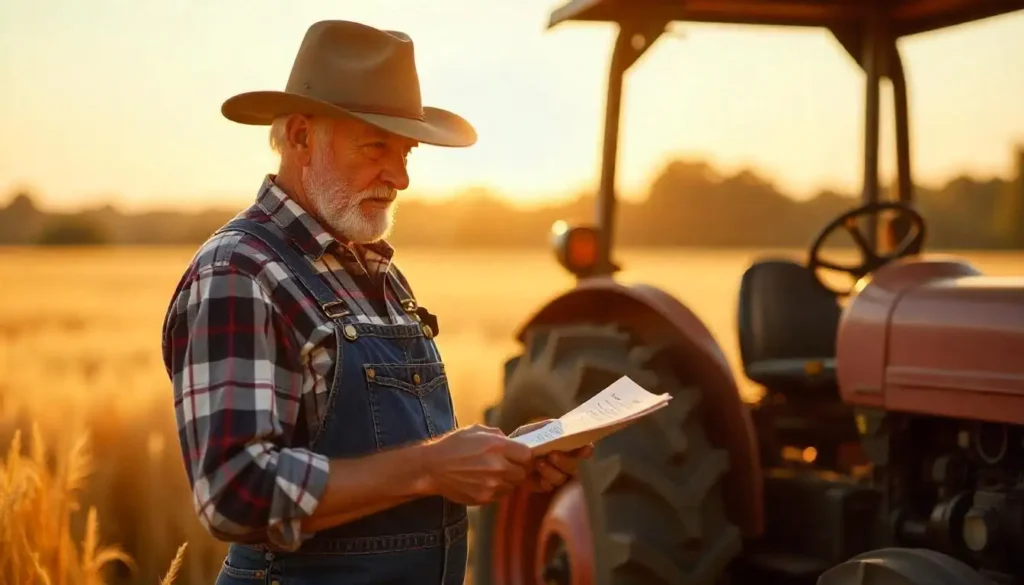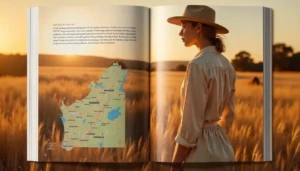Secure Your Legacy with Lyon Legal’s Wills & Estate Planning Services
Why Estate Planning Matters for Farming Families
Family farms are more than just land and livestock—they are legacies passed through generations. But without proper estate planning, these legacies can become the centre of bitter family disputes, costly court battles, and even financial ruin.
At Lyon Legal, we specialise in helping farming families across Northern NSW create robust, legally-sound estate plans to preserve their wealth, protect their relationships, and secure future generations.
In this guide, we explore the key estate planning tools and strategies tailored for rural families, the risks of neglecting proper planning, and how to avoid common legal pitfalls in farming estate transitions.
1. Understanding the Unique Challenges of Farming Estates
Unlike a typical suburban estate, a farming estate often involves:
-
Significant land holdings, sometimes valued in the millions
-
Operating businesses with assets like equipment, livestock, and crops
-
Intergenerational involvement—parents, children, and sometimes grandchildren living and working on the farm
-
Emotional attachment to the land
-
A need to balance fairness vs. practicality when passing on the farm to children
These complexities make estate planning for farmers a highly specialised area of law. A simple Will isn’t enough—you need a comprehensive estate strategy that considers business continuity, tax efficiency, family harmony, and legal compliance.
2. What Can Go Wrong Without an Estate Plan?

When a farming parent dies without a Will or clear instructions, the fallout can be devastating:
-
Family disputes over who inherits what
-
Forced sale of farmland to divide assets equally among children
-
Legal challenges from excluded or dissatisfied beneficiaries
-
Delays in business operations, leaving crops unharvested or livestock unsupervised
-
Emotional distress, damaged relationships, and irreparable family rifts
Real Risk: Intestacy in NSW
If a person dies without a valid Will in New South Wales, the estate is distributed according to the Succession Act 2006 (NSW). This process does not take into account:
-
Farming contributions made by certain children
-
Wishes expressed informally
-
Long-term business arrangements
-
The emotional or cultural value of the land
That’s why every farming family needs a legally sound Will and succession plan tailored to their unique assets and relationships.
3. Essential Estate Planning Documents for Farmers
✅ Valid Will
Outlines who inherits your assets and appoints an Executor to manage the estate. Must be up-to-date and comply with NSW law.
✅ Testamentary Trust
A trust created by your Will. It can:
-
Protect assets from family law claims or creditors
-
Reduce tax for beneficiaries
-
Delay distribution until children reach maturity
✅ Power of Attorney
Appoints someone to manage your financial affairs if you become incapacitated. Essential if farming operations must continue without you.
✅ Enduring Guardianship
Allows someone to make medical and lifestyle decisions for you if you lose capacity.
✅ Farm Succession Plan
A written strategy that outlines:
-
Who will run the farm when you step back
-
Ownership transition timelines
-
How to compensate non-farming children
-
Conflict resolution strategies
4. Succession Planning: Who Gets the Farm?
Passing on the farm is often the most emotionally charged and legally complex part of estate planning.
Common Approaches:
-
One Child Inherits the Farm
Usually the child who has worked on the farm long-term. Risks resentment from siblings. -
Farm Held in Family Trust
Helps keep the farm together, but requires clear instructions on control and distribution. -
Split Ownership Among Siblings
Sounds fair, but can lead to disputes over management, profit-sharing, and sale decisions. -
Sell the Farm, Distribute Proceeds
Destroys the family legacy—but sometimes necessary.
Our Advice:
Have open conversations early, guided by legal and financial experts. Document everything in writing. Update your Will and succession plan as family circumstances change.
5. Managing Non-Farming Beneficiaries
One of the biggest estate challenges is how to treat non-farming children fairly if one child receives the farm.
Options Include:
-
Life insurance to “equalise” inheritances
-
Cash gifts or superannuation proceeds
-
Ownership in off-farm investments
-
Partial interest in the farm business (if they want involvement)
Remember, equal isn’t always fair, and fair isn’t always equal. A well-structured estate plan can address both.
6. Capital Gains Tax, Stamp Duty & Centrelink Considerations
Estate planning for farmers must include tax minimisation strategies.
Key Considerations:
-
Capital Gains Tax (CGT) may apply on transfer of land or business
-
Stamp Duty exemptions may be available for family farm transfers in NSW
-
Centrelink impacts for retired parents receiving the Age Pension
-
Primary Production Exemptions for land used for farming
Work with a legal and financial advisor who understands rural taxation and asset structuring to avoid nasty surprises.
7. Tips to Prevent Disputes and Keep the Peace
✅ Have Open, Ongoing Conversations
Discuss your wishes with all family members, especially those working on the farm. Encourage honesty and transparency.
✅ Document Everything
Avoid informal promises or verbal agreements. Only legal documents are enforceable in court.
✅ Update Regularly
Your Will and plan should evolve with:
-
Marriages, births, or deaths
-
Property acquisitions or sales
-
Retirement or succession milestones
✅ Use Mediation if Needed
Professional mediators or parenting coordinators can help diffuse tension and find common ground.
✅ Seek Expert Legal Help
Don’t rely on DIY kits or outdated templates. Estate law in NSW is nuanced—get it right the first time.
8. Case Study: A Local NSW Family Who Got It Right
The Smith family owned a 200-hectare cattle farm in the Northern Rivers region. Their son Tom had worked the farm since he was 20. His siblings pursued careers elsewhere.
The parents worked with Lyon Legal to:
-
Draft a Will giving the farm to Tom
-
Create a Testamentary Trust to protect assets
-
Take out life insurance to provide equal value to the other children
-
Appoint Tom as Power of Attorney for farming decisions
-
Create a succession plan that gradually transitioned ownership over 10 years
The result? No court battles, no resentment, and a thriving family farm still in the Smith name.
9. Why DIY Wills Can Fail – Trust Lyon Legal for a Secure Future
DIY Wills are cheap—but risky. For farming families, those risks multiply.
Common DIY Failures:
-
Vague instructions that lead to disputes
-
Outdated information not compliant with NSW laws
-
Lack of contingency planning
-
Invalid execution (wrong witnesses, unsigned documents)
-
No tax planning or trust structures
With Lyon Legal, you get:
-
Legally valid Wills
-
Custom strategies for rural and farming families
-
Guidance through emotionally difficult conversations
-
Regular updates as your family grows or laws change
We understand the local laws, values, and challenges that matter to Northern NSW farmers.
10. Next Steps: Estate Planning Services for Farming Families
Estate planning isn’t just about death—it’s about peace of mind, family harmony, and business continuity.
How Lyon Legal Can Help:
✅ Draft or update your Will
✅ Structure Testamentary Trusts
✅ Develop your farm succession plan
✅ Prepare Enduring Powers of Attorney & Guardianship
✅ Navigate CGT and stamp duty issues
✅ Facilitate family discussions and planning
Book a Free Initial Consultation
Let us help you protect your farm, your family, and your future.
Final Thoughts
Farming families work hard for generations to build something lasting. But without proper estate planning, that legacy can unravel overnight. Whether you’re nearing retirement or just starting to plan, it’s never too early—or too late—to protect what matters most.
Don’t leave your family’s future to chance.
Call to Action
Ready to plan your family farm’s future?
Email us at info@lyonlegalservices.com.au
Visit our Estate Planning Services page


















